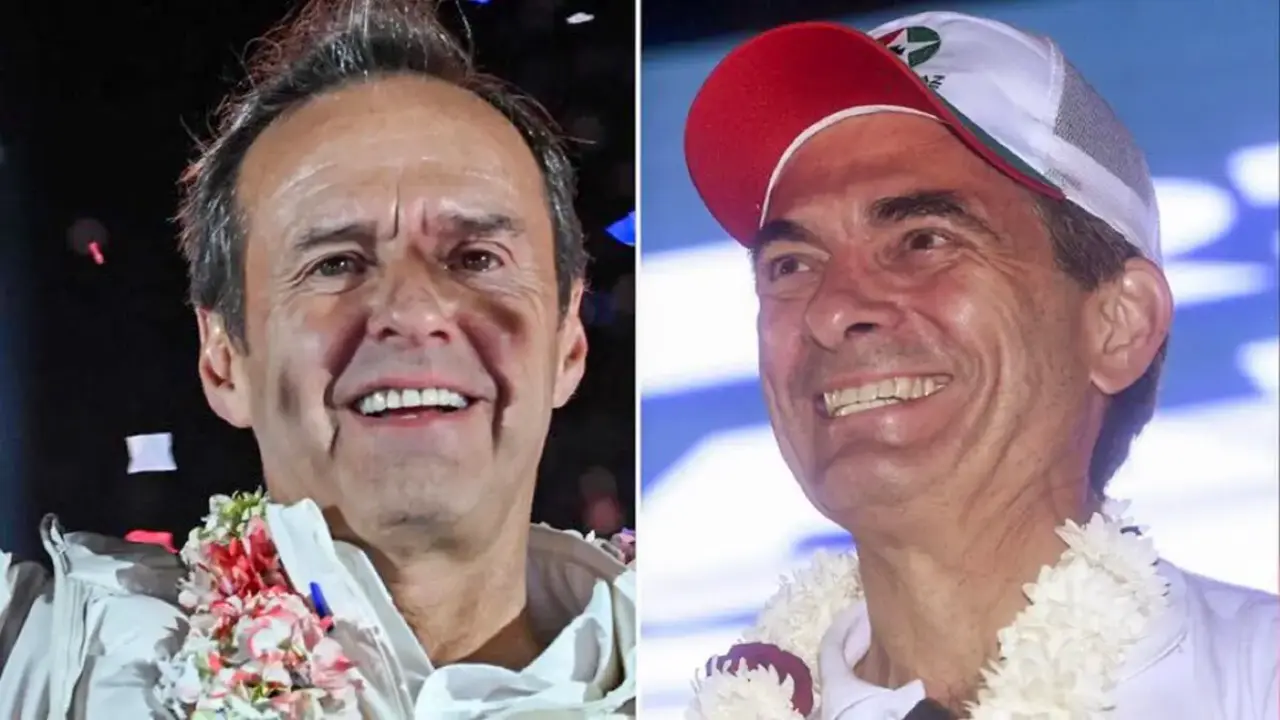North Korea's threats and differences over Ukraine dominate APEC

As was the case at the recent G20 summit in Bali, the Asia-Pacific Economic Cooperation (APEC) forum has been affected by a missile incident. In this case, instead of Poland, the victim has been Japan's exclusive economic zone (EEZ), which in the last few hours has received two ballistic missiles from North Korea.
"North Korea continues to carry out provocative actions with a frequency never seen before," declared Japanese Prime Minister Fumio Kishida at APEC. For several weeks now, the regime in Pyongyang has launched dozens of missiles into the Sea of Japan in response to joint US-South Korean military exercises. Kishida also reaffirmed to the press that he "cannot accept such actions".

In addition, Japan's Defence Minister Yasukazu Hamada warned that the missile had sufficient range to reach the United States. "According to calculations that take into account the trajectory, the ballistic missile could have had a range capability of 15,000 km," meaning that "the United States was within range," he said.
Japanese PM Fumio Kishida says on N.Korea missile launch, we naturally lodged a strong protest against North Korea, which has repeated its provocations with unprecedented frequency pic.twitter.com/y2ceJ4vdjt
— TRT World Now (@TRTWorldNow) November 18, 2022
For its part, as it did in Indonesia after the incident in Poland, the US convened an emergency meeting with its allies. US Vice President Kamala Harris, who is in Thailand on behalf of Joe Biden, met with the leaders of Australia, Japan, South Korea, Canada and New Zealand on the sidelines of the summit to assess the situation.

Harris called the North Korean missile launch a "blatant violation" of UN security resolutions, as well as an act that "destabilises security in the region and raises tensions unnecessarily", Reuters reports. South Korean Prime Minister Han Duck-soo - like the other participants in the emergency meeting - "strongly" condemned the actions of its northern neighbour. "We urge North Korea to immediately cease all kinds of provocations and abide by the relevant UN Security Council resolutions," he said.
Today in Bangkok, I convened leaders from Japan, Republic of Korea, Australia, New Zealand, and Canada to condemn the DPRK’s ballistic missile launch and consult on next steps. I reaffirmed our ironclad commitment to our Indo-Pacific alliances. pic.twitter.com/T5agtriAJe
— Vice President Kamala Harris (@VP) November 18, 2022
Days before the start of the Bangkok forum, the United States warned that differences over the war in Ukraine would be very much in evidence within APEC. The Department's senior official for APEC, Matt Murray, noted in an interview with VOA (Voice of America) that differing views would prevent APEC members from agreeing on a joint statement.
The statement adopted by APEC notes that most members condemn the war in Ukraine, but also reveals that "there were other views, opinions and different assessments of the situation and sanctions". In this regard, summit host Thailand has urged the region's leaders to "overcome differences" to focus on resolving global economic problems related to trade and inflation.

French President Emmanuel Macron - one of the special guests at the summit - called on APEC members to return to "international rules and multilateralism" to achieve global peace and stability. In this context, the French leader defined Russia's invasion of Ukraine as "an aggression against international rules".
Despite APEC's efforts, "expectations for any diplomatic breakthrough are low", according to CNBC correspondent Sri Jegarah. Jegarah cites the absence of US President Joe Biden and his Russian counterpart Vladimir Putin, as well as the lack of unanimity on Ukraine. Nevertheless, the Thai government is optimistic that the summit is "a golden opportunity for all stakeholders in the Ukraine crisis". Bangkok also sees the forum as "a possible way out of the global crisis".
WATCH: A maskless Xi Jinping arrives at APEC in Bangkok, where he has pressed ahead with efforts to repair relations with key US allies https://t.co/DIGQa0NW6R pic.twitter.com/sFO6nLybp5
— Bloomberg Politics (@bpolitics) November 18, 2022
Despite the absence of Biden and Putin, APEC will be attended by the region's two heavyweights, Chinese leader Xi Jinping and Indian Prime Minister Narendra Modi. Xi, who has met with several leaders from the Pacific region such as Gabriel Boric and Jacinda Ardern, stressed that the Asia-Pacific was nobody's backyard and should not become a stage for rivalries between great powers. "No attempt to wage a new cold war will be allowed by the people," he stressed in a statement.








